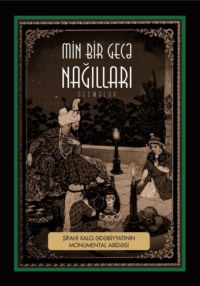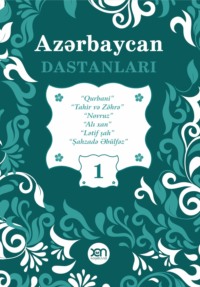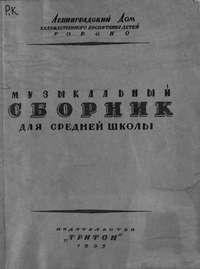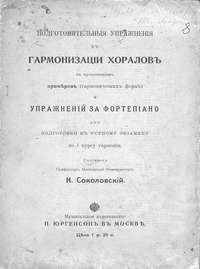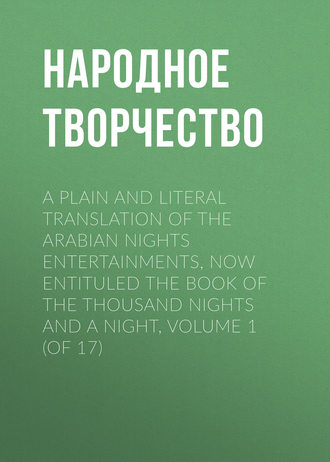 полная версия
полная версияA plain and literal translation of the Arabian nights entertainments, now entituled The Book of the Thousand Nights and a Night, Volume 1 (of 17)
248
The "Lady of Beauty."
249
"Káf" has been noticed as the mountain which surrounds earth as a ring does the finger: it is popularly used like our Alp and Alpine. The "circumambient Ocean" (Bahr al-muhít) is the Homeric Ocean-stream.
250
The pomegranate is probably chosen here because each fruit is supposed to contain one seed from Eden-garden. Hence a host of superstitions (Pilgrimage iii., 104) possibly connected with the Chaldaic-Babylonian god Rimmon or Ramanu. Hence Persephone or Ishtar tasted the "rich pomegranate's seed." Lenormant, loc. cit. pp. 166,182.
251
i. e. for the love of God – a favourite Moslem phrase.
252
Arab. "Báb," also meaning a chapter (of magic, of war, etc.), corresponding with the Persian "Dar" as in Sad-dar, the Hundred Doors. Here, however, it is figurative "I tried a new mode." This scene is in the Mabinogion.
253
I use this Irish term=crying for the dead; as English wants the word for the præfica or myrialogist. The practice is not encouraged in Al-Islam; and Caliph Abu Bakr said, "Verily a corpse is sprinkled with boiling water by reason of the lamentations of the living," i. e. punished for not having taken measures to prevent their profitless lamentations. But the practice is from Negroland whence it reached Egypt; and the people have there developed a curious system in the "weeping-song": I have noted this in "The Lake-Regions of Central Africa." In Zoroastrianism (Dabistan, chapt. xcvii.) tears shed for the dead form a river in hell, black and frigid.
254
These lines are hardly translateable. Arab. "Sabr" means "patience" as well as "aloes," hereby lending itself to a host of puns and double entendres more or less vile. The aloe, according to Burckhardt, is planted in grave-yards as a lesson of patience: it is also slung, like the dried crocodile, over house-doors to prevent evil spirits entering; "thus hung without earth and water," says Lane (M. E., chapt. xi.), "it will live for several years and even blossom. Hence (?) it is called Sabr, which signifies patience." But Sibr as well as Sabr (a root) means "long-sufferance." I hold the practise to be one of the many Inner African superstitions. The wild Gallas to the present day plant aloes on graves, and suppose that when the plant sprouts the deceased has been admitted to the gardens of Wák, the Creator. (Pilgrimage iii. 350).
255
Every city in the East has its specific title: this was given to Baghdad either on account of its superior police or simply because it was the Capital of the Caliphate. The Tigris was also called the "River of Peace (or Security)."
256
This is very characteristic: the passengers finding themselves in difficulties at once take command. See in my Pilgrimage (I. chapt. xi.) how we beat and otherwise maltreated the Captain of the "Golden Wire."
257
The fable is probably based on the currents which, as in Eastern Africa, will carry a ship fifty miles a day out of her course. We first find it in Ptolemy (vii. 2) whose Maniólai Islands, of India extra Gangem, cause iron nails to fly out of ships, the effect of the Lapis Herculeus (Loadstone). Rabelais (v. c. 37) alludes to it and to the vulgar idea of magnetism being counteracted by Skordon (Scordon or garlic). Hence too the Adamant (Loadstone) Mountains of Mandeville (chapt. xxvii.) and the "Magnetic Rock" in Mr. Puttock's clever "Peter Wilkins." I presume that the myth also arose from seeing craft built, as on the East African Coast, without iron nails. We shall meet with the legend again. The word Jabal ("Jebel" in Egypt) often occurs in these pages. The Arabs apply it to any rising ground or heap of rocks; so it is not always=our mountain. It has found its way to Europe e. g. Gibraltar and Monte Gibello (or Mongibel in poetry)="Mt. Ethne that men clepen Mounte Gybelle." Other special senses of Jabal will occur.
258
As we learn from the Nubian Geographer the Arabs in early ages explored the Fortunate Islands, Jazírát al-Khálidát (=Eternal Isles), or Canaries, on one of which were reported a horse and horseman in bronze with his spear pointing west. Ibn al-Wardi notes "two images of hard stone, each an hundred cubits high, and upon the top of each a figure of copper pointing with its hand backwards, as though it would say: – Return for there is nothing behind me!" But this legend attaches to older doings. The 23rd Tobba (who succeeded Bilkis), Malik bin Sharhabíl, (or Sharabíl or Sharahíl) surnamed Náshir al-Ni'ám=scatterer of blessings, lost an army in attempting the Western sands and set up a statue of copper upon whose breast was inscribed in antique characters: —
There is no access behind me,
Nothing beyond,
(Saith) The Son of Sharabíl.
259
i. e. I exclaimed "Bismillah!"
260
The lesser ablution of hands, face and feet; a kind of "washing the points." More in Night ccccxl.
261
Arab. "Ruka'tayn"; the number of these bows which are followed by the prostrations distinguishes the five daily prayers.
262
The "Beth Kol" of the Hebrews; also called by the Moslems "Hátif"; for which ask the Spiritualists. It is the Hindu "voice divine" or "voice from heaven."
263
These formulæ are technically called Tasmiyah, Tahlíl (before noted) and Takbír: the "testifying" is Tashhíd.
264
Arab. "Samn," (Pers. "Raughan" Hind. "Ghi") the "single sauce" of the East; fresh butter set upon the fire, skimmed and kept (for a century if required) in leather bottles and demijohns. Then it becomes a hard black mass, considered a panacea for wounds and diseases. It is very "filling": you say jocosely to an Eastern threatened with a sudden inroad of guests, "Go, swamp thy rice with Raughan." I once tried training, like a Hindu Pahlawan or athlete, on Gur (raw sugar), milk and Ghi; and the result was being blinded by bile before the week ended.
265
These handsome youths are always described in the terms we should apply to women.
266
The Bul. Edit. (i. 43) reads otherwise: – I found a garden and a second and a third and so on till they numbered thirty and nine; and, in each garden, I saw what praise will not express, of trees and rills and fruits and treasures. At the end of the last I sighted a door and said to myself, "What may be in this place?; needs must I open it and look in!" I did so accordingly and saw a courser ready saddled and bridled and picketed; so I loosed and mounted him; and he flew with me like a bird till he set me down on a terrace-roof; and, having landed me, he struck me a whisk with his tail and put out mine eye and fled from me. Thereupon I descended from the roof and found ten youths all blind of one eye who, when they saw me exclaimed, "No welcome to thee, and no good cheer!" I asked them, "Do ye admit me to your home and society?" and they answered, "No, by Allah, thou shalt not live amongst us." So I went forth with weeping eyes and grieving heart, but Allah had written my safety on the Guarded Tablet so I reached Baghdad in safety, etc. This is a fair specimen of how the work has been curtailed in that issue.
267
Arabs date pregnancy from the stopping of the menses, upon which the fœtus is supposed to feed. Kalilah wa Dimnah says, "The child's navel adheres to that of his mother and thereby he sucks" (i. 263).
268
This is contrary to the commands of Al-Islam; Mohammed expressly said "The Astrologers are liars, by the Lord of the Ka'abah!"; and his saying is known to almost all Moslems, lettered or unlettered. Yet, the further we go East (Indiawards) the more we find these practises held in honour. Turning westwards we have:
Iuridicis, Erebo, Fisco, fas vivere rapto;Militibus, Medicis, Tortori occidere ludo est;Mentiri Astronomis, Pictoribus atque Poetis.269
He does not perform the Wuzu or lesser ablution because he neglects his dawn prayers.
270
For this game see Lane (M. E. Chapt. xvii.) It is usually played on a checked cloth not on a board like our draughts; and Easterns are fond of eating, drinking and smoking between and even during the games. Torrens (p. 142) translates "I made up some dessert," confounding "Mankalah" with "Nukl" (dried fruit, quatre-mendiants).
271
Quoted from Mohammed whose saying has been given.
272
We should say "the night of the thirty-ninth."
273
The bath first taken after sickness.
274
Arab. "Dikák" used by way of soap or rather to soften the skin: the meal is usually of lupins, "Adas"="Revalenta Arabica," which costs a penny in Egypt and half-a-crown in England.
275
Arab. "Sukkar-nabát." During my day (1842-49) we had no other sugar in the Bombay Presidency.
276
This is one of the myriad Arab instances that the decrees of "Anagké," Fate, Destiny, Weird, are inevitable. The situation is highly dramatic; and indeed The Nights, as will appear in the terminal Essay, have already suggested a national drama.
277
Having lately been moved by Ajib.
278
Mr. Payne (i. 131.) omits these lines which appear out of place; but this mode of inappropriate quotation is a characteristic of Eastern tales.
279
Anglicè "him."
280
This march of the tribe is a lieu commun of Arab verse e. g. the poet Labid's noble elegy on the "Deserted Camp." We shall find scores of instances in The Nights.
281
I have heard of such sands in the Desert east of Damascus which can be crossed only on boards or camel furniture; and the same is reported of the infamous Region "Al-Ahkáf" ("Unexplored Syria").
282
Hence the Arab. saying "The bark of a dog and not the gleam of a fire;" the tired traveller knows from the former that the camp is near, whereas the latter shows from great distances.
283
Dark blue is the colour of mourning in Egypt as it was of the Roman Republic. The Persians hold that this tint was introduced by Kay Kawús (B.C. 600) when mourning for his son Siyáwush. It was continued till the death of Husayn on the 10th of Muharram (the first month, then representing the vernal equinox) when it was changed for black. As a rule Moslems do not adopt this symbol of sorrow (called "Hidád"), looking upon the practice as somewhat idolatrous and foreign to Arab manners. In Egypt and especially on the Upper Nile women dye their hands with indigo and stain their faces black or blacker.
284
The older Roc, of which more in the Tale of Sindbad. Meanwhile the reader curious about the Persian Símurgh (thirty bird) will consult the Dabistan, i., 55, 191 and iii., 237, and Richardson's Diss. p. xlviii. For the Anka (Enka or Unka=long-necked bird) see Dab. iii., 249 and for the Humá (bird of Paradise) Richardson lxix. We still lack details concerning the Ben or Bennu (nycticorax) of Egypt which with the Article pi gave rise to the Greek "phœnix."
285
Probably the Haledj of Forskal (p. xcvi. Flor. Ægypt. Arab.), "lignum tenax, durum, obscuri generis." The Bres. Edit, has "ákúl"=teak wood, vulg. "Sáj."
286
The knocker ring is an invention well known to the Romans.
287
Arab. "Sadr"; the place of honour; hence the "Sudder Adawlut" (Supreme Court) in the Anglo-Indian jargon.
288
Arab. "Ahlan wa sahlan wa marhabá," the words still popularly addressed to a guest.
289
This may mean "liquid black eyes"; but also, as I have noticed, that the lashes were long and thick enough to make the eyelids appear as if Kohl-powder had been applied to the inner rims.
290
A slight parting between the two front incisors, the upper only, is considered a beauty by Arabs; why it is hard to say except for the racial love of variety. "Sughr" (Thugr) in the text means, primarily, the opening of the mouth, the gape: hence the front teeth.
291
i. e. makes me taste the bitterness of death, "bursting the gall-bladder" (Marárah) being our "breaking the heart."
292
Almost needless to say that forbidden doors and rooms form a lieu commun in Fairie: they are found in the Hindu Katha Sarit Sagara and became familiar to our childhood by "Bluebeard."
293
Lit. "apply Kohl to my eyes," even as Jezebel "painted her face," in Heb. put her eyes in painting (2 Kings ix., 30).
294
Arab. "Al-Barkúk," whence our older "Apricock." Classically it is "Burkúk" and Pers. for Arab. "Mishmish," and it also denotes a small plum or damson. In Syria the "side next the sun" shows a glowing red flush.
295
Arab. "Hazáṙ" (in Persian, a thousand)=a kind of mocking bird.
296
Some Edit. make the doors number a hundred, but the Princesses were forty and these coincidences, which seem to have significance and have none save for Arab symmetromania, are common in Arab stories.
297
Arab. "Májúr": hence possibly our "mazer," which is popularly derived from Masarn, a maple.
298
A compound scent of ambergris, musk and aloes.
299
The ends of the bridle-reins forming the whip
300
The flying horse is Pegasus which is a Greek travesty of an Egyptian myth developed in India.
301
The Bres. Edit. wrongly says "the seventh."
302
Arab. "Sharmutah" (plur. Sharámít) from the root Sharmat, to shred, a favourite Egyptian word also applied in vulgar speech to a strumpet, a punk, a piece. It is also the popular term for strips of jerked or boucaned meat hung up in the sun to dry, and classically called "Kadíd."
303
Arab. "Izár," the man's waist-cloth opposed to the Ridá or shoulder-cloth, is also the sheet of white calico worn by the poorer Egyptian women out of doors and covering head and hands. See Lane (M. E., chapt. i). The rich prefer a "Habárah" of black silk, and the poor, when they have nothing else, use a bed-sheet.
304
i. e. "My dears."
305
Arab. "Lá tawákhizná:" lit. "do not chastise (or blame) us;" the pop. expression for, "excuse (or pardon) us."
306
Arab. "Maskhút," mostly applied to change of shape as man enchanted to monkey, and in vulgar parlance applied to a statue (of stone, etc.). The list of metamorphoses in Al-Islam is longer than that known to Ovid. Those who have seen Petra, the Greek town of the Haurán and the Roman ruins in Northern Africa will readily detect the basis upon which these stories are built. I shall return to this subject in The City of Iram (Night cclxxvi.) and The City of Brass (dlxvii.).
307
A picturesque phrase enough to express a deserted site, a spectacle familiar to the Nomades and always abounding in pathos to the citizens.
308
The olden "Harem" (or gynæceum, Pers. Zenanah, Serraglio): Harím is also used by synecdoche for the inmates; especially the wife.
309
The pearl is supposed in the East to lose 1 % per ann. of its splendour and value.
310
Arab. "Fass," properly the bezel of a ring; also a gem cut en cabochon and generally the contenant for the contenu.
311
Arab. "Mihráb"=the arch-headed niche in the Mosque-wall facing Meccah-wards. Here, with his back to the people and fronting the Ka'abah or Square House of Meccah (hence called the "Kiblah"=direction of prayer), stations himself the Imám, antistes or fugleman, lit. "one who stands before others;" and his bows and prostrations give the time to the congregation. I have derived the Mihrab from the niche in which the Egyptian God was shrined: the Jews ignored it, but the Christians preserved it for their statues and altars. Maundrell suggests that the empty niche denotes an invisible God. As the niche (symbol of Venus) and the minaret (symbol of Priapus) date only from the days of the tenth Caliph, Al-Walid (A.H. 86-96=105-115), the Hindus charge the Moslems with having borrowed the two from their favourite idols – The Linga-Yoni or Cunnus-phallus (Pilgrimage ii. 140), and plainly call the Mihrab a Bhaga=Cunnus (Dabistan ii. 152.) The Guebres further term Meccah "Mah-gah," locus Lunæ, and Al-Medinah, "Mahdinah,"=Moon of religion. See Dabistan i., 49, etc.
312
Arab. "Kursi," a stool of palm-fronds, etc., ×-shaped (see Lane's illustration, Nights i., 197), before which the reader sits. Good Moslems will not hold the Holy Volume below the waist nor open it except when ceremonially pure. Englishmen in the East should remember this, for to neglect the "Adab al-Kúran" (respect due to Holy Writ) gives great scandal.
313
Mr. Payne (i. 148) quotes the German Zuckerpüppchen.
314
The Persian poets have a thousand conceits in praise of the "mole," (Khál or Shámah) for which Hafiz offered "Samarkand and Bokhara" (they not being his, as his friends remarked). Another "topic" is the flight of arrows shot by eyelashes.
315
Arab. "Suhá" a star in the Great Bear introduced only to balance "wushát"=spies, enviers, enemies, whose "evil eye" it will ward off.
316
In Arab tales beauty is always "soft-sided," and a smooth skin is valued in proportion to its rarety.
317
The myrtle is the young hair upon the side-face.
318
In other copies of these verses the fourth couplet swears "by the scorpions of his brow" i. e. the accroche-cœurs, the beau-catchers, bell-ropes or "aggravators," as the B.P. calls them. In couplet eight the poet alludes to his love's "Unsur," or element, his nature made up of the four classicals, and in the last couplet he makes the nail-paring refer to the moon not the sun.
319
This is regular formula when speaking of Guebres.
320
Arab. "Faráiz"; the orders expressly given in the Koran which the reader will remember, is Uncreate and Eternal. In India "Farz" is applied to injunctions thrice repeated; and "Wájib" to those given twice over. Elsewhere scanty difference is made between them.
321
Arab. "Kufr"=rejecting the True Religion, i. e. Al-Islam, such rejection being "Tughyán" or rebellion against the Lord. The "terrible sound" is taken from the legend of the prophet Sálih and the proto-historic tribe of Thámúd which for its impiety was struck dead by an earthquake and a noise from heaven. The latter, according to some commentators, was the voice of the Archangel Gabriel crying "Die all of you" (Koran, chapts. vii. xviii., etc.). We shall hear more of it in the "City of many-coloured Iram." According to some, Salih, a mysterious Badawi prophet, is buried in the Wady al-Shaykh of the so-called Sinaitic Peninsula.
322
Yet they kept the semblance of man, showing that the idea arose from the basaltic statues found in Hauranic ruins. Mohammed in his various marches to Syria must have seen remnants of Greek and Roman settlements; and as has been noticed "Sesostris" left his mark near Meccah. (Pilgrimage iii. 137).
323
Arab. "Shuhadá"; highly respected by Moslems as by other religionists; although their principal if not only merit seems as a rule to have been intense obstinacy and devotion to one idea for which they were ready to sacrifice even life. The Martyrs-category is extensive including those killed by falling walls; victims to the plague, pleurisy and pregnancy; travellers drowned or otherwise lost when journeying honestly, and chaste lovers who die of "broken hearts" i. e. impaired digestion. Their souls are at once stowed away in the crops of green birds where they remain till Resurrection Day, "eating of the fruits and drinking of the streams of Paradise," a place however, whose topography is wholly uncertain. Thus the young Prince was rewarded with a manner of anti-Purgatory, a preparatory heaven.
324
Arab. "Su 'ubán: " the Badawin give the name to a variety of serpents all held to be venomous; but in tales the word, like "Tannín." expresses our "dragon" or "cockatrice."
325
She was ashamed to see the lady doing servile duty by rubbing her feet. This massage, which B. de la Brocquière describes in 1452 as "kneading and pinching," has already been noticed. The French term is apparently derived from the Arab. "Mas-h."
326
Alluding to the Most High Name, the hundredth name of God, the Heb. Shem hamphorash, unknown save to a favoured few who by using it perform all manner of miracles.
327
i. e. the Mediterranean and the Indian Ocean.
328
i. e. Settled by the Koran.
329
The uglier the old woman the better procuress she is supposed to make. See the Santa Verdiana in Boccaccio v., 10. In Arab. "Ajuz" (old woman) is highly insulting and if addressed to an Egyptian, whatever be her age she will turn fiercely and resent it. The polite term is Shaybah (Pilgrimage iii., 200).
330
The four ages of woman, considered after Demosthenes in her three-fold character, prostitute for pleasure, concubine for service and wife for breeding.
331
Arab. "Jilá" (the Hindostani Julwa)=the displaying of the bride before the bridegroom for the first time, in different dresses, to the number of seven which are often borrowed for the occasion. The happy man must pay a fee called "the tax of face-unveiling" before he can see her features. Amongst Syrian Christians he sometimes tries to lift the veil by a sharp movement of the sword which is parried by the women present, and the blade remains entangled in the cloth. At last he succeeds, the bride sinks to the ground covering her face with her hands and the robes of her friends: presently she is raised up, her veil is readjusted and her face is left bare.
332
Arab. "Ishá"=the first watch of the night, twilight, supper-time, supper. Moslems have borrowed the four watches of the Romans from 6 (a. m. or p. m.) to 6; and ignore the three original watches of the Jews, even, midnight and cockcrow (Sam. ii. 19, Judges vii. 19, and Exodus xiv. 24).
333
A popular Arab hyperbole.
334
Arab. "Shakáik al-Nu'umán," lit. the fissures of Nu'uman, the beautiful anemone, which a tyrannical King of Hirah, Nu'uman ibn Al-Munzir, a contemporary of Mohammed, attempted to monopolize.
335
Arab. "Andam"=here the gum called dragon's blood; in other places the dye-wood known as brazil.


